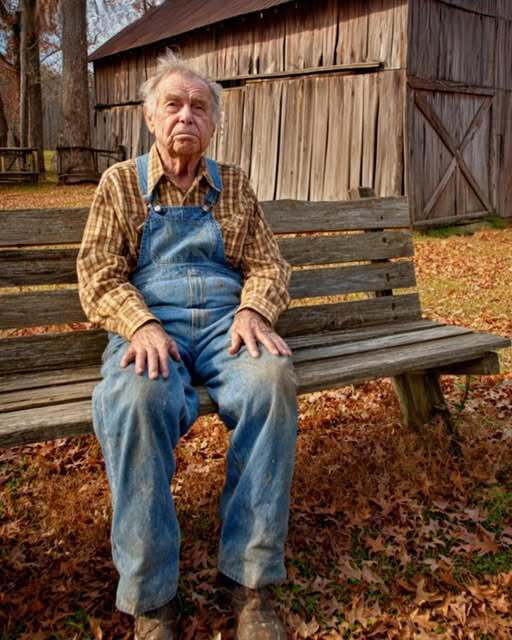I grew up thinking my grandfather was the definition of simplicity. A man of few words, with sun-browned skin, weathered hands, and boots that smelled of diesel and hay. He wore the same faded jeans every day, shirts patched at the elbows, and a jacket that always carried the faint scent of tobacco. To most of the family, he was distant—closed off, hard to read. But to me, he was something else entirely.
As a little girl, I was his shadow. I followed him between rows of corn and green beans, tugging clumsily at weeds while his hands moved with quiet precision. Sometimes he’d let me ride the horses—a privilege none of my cousins had—and it made me feel like I mattered. We’d fish by the pond in silence, and somehow that silence never felt empty. As I got older, I’d drive out to the farm just to sit beside him on the porch, sipping coffee while cicadas hummed. He told stories—short, sometimes funny, sometimes hard—but never too revealing. He didn’t explain the world. He respected it.
When Grandpa died last winter, I expected grief. What I didn’t expect was the will.
We all assumed modest inheritances. He lived plainly, drove a rattling old truck, patched his clothes, refused gifts. My uncles and cousins figured the farm would go to the eldest grandson, or maybe to my mom, his only daughter.
